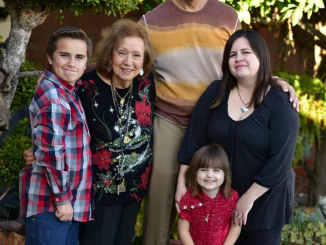Ever found yourself hesitating to ask a guest to remove their shoes, only to be told by someone, like your mother-in-law, that you’re being discourteous? You’re not alone! It’s a surprisingly polarizing topic that touches on cleanliness, cultural customs, and hosting etiquette. So, is it really rude to request this, or is it simply a matter of personal preference?
Understanding the Cultural Context of Shoe Removal

One of the biggest factors shaping opinions on this issue is culture. In many Asian and Scandinavian households, removing shoes is not just polite—it’s a must. It’s seen as a sign of respect and a way to keep homes clean and sacred. On the other hand, many Western cultures don’t place as much emphasis on this practice. Guests often keep their shoes on indoors, and requesting otherwise might be considered unusual.
Does this mean you shouldn’t ask guests to remove their shoes if it’s part of your household tradition? Absolutely not! The key is recognizing that cultural norms differ. Being aware of these differences can help you approach the topic in a way that’s both respectful and confident.
Health and Hygiene: The Case for Bare Floors
If you’ve ever looked at the bottom of a pair of shoes after a long day, you already know they’re not exactly clean. Shoes can track in dirt, bacteria, and allergens that could easily spread around your home. For families with small kids crawling on the floor or those with allergies, maintaining a shoe-free home can be a lifesaver.
Think about it: would you want the same shoes that trudged through public bathrooms or muddy sidewalks to stomp across your living room carpet? Probably not. Explaining this perspective to your guests can make your request feel less like an arbitrary rule and more like a thoughtful choice for the health of everyone in the household.
Does Hosting Etiquette Really Say No to Shoe Removal?
Traditional hosting etiquette often emphasizes guest comfort, suggesting that making guests feel at home should be your top priority. But modern etiquette acknowledges that it’s equally important to respect the host’s rules. After all, it’s your home, and you’re entitled to set boundaries.
The trick is finding a balance. Yes, you want your guests to feel comfortable, but you also want to feel comfortable in your own space. Asking guests to remove their shoes doesn’t have to be a big deal—it’s all about how you frame the request. Approach it with kindness, and most guests will happily comply.
Managing Family Dynamics: When Your Mother-in-Law Disagrees
Let’s face it: family dynamics can complicate even the simplest decisions. If your mother-in-law insists that asking guests to remove their shoes is “rude,” it can feel like you’re caught in the middle. So, how do you handle this without creating tension?
Start by having a calm conversation. Explain why this practice matters to you—whether it’s about cleanliness, cultural tradition, or personal preference. Acknowledge her perspective, but make it clear that this is a decision you’ve made for your home. Compromise can help here; for example, you could consider allowing exceptions for certain guests or occasions while sticking to your rule in everyday situations.
How to Politely Ask Guests to Remove Their Shoes
So, how do you actually ask someone to take their shoes off without sounding rude or awkward? It’s all about tone and preparation. Here are a few tips:
- Set the Tone Beforehand: If possible, let guests know about your shoe-free policy before they arrive. A simple mention in an invitation—like, “Feel free to bring comfy socks; we’re a shoe-free household!”—can go a long way.
- Provide Comfort: Make the transition easier by offering a designated shoe rack by the door and providing clean slippers or cozy socks for guests who might feel uncomfortable going barefoot.
- Use Polite Language: When guests arrive, frame the request as a preference rather than a demand. For example, “We usually ask everyone to leave their shoes at the door to keep things clean. Thanks so much!”
When you approach the topic with thoughtfulness, most people will appreciate your effort and won’t think twice about slipping off their shoes.
Balancing Tradition and Modern Practices

Incorporating traditions while respecting modern hosting practices can be a delicate dance. Traditional etiquette might emphasize catering to guests’ every need, but modern hosting often focuses on mutual respect and consideration. Striking the right balance means blending these approaches.
For instance, if you’re hosting a formal dinner party and you know some guests might find shoe removal awkward, consider making an exception for that event. But during casual gatherings or day-to-day visits, stick to your shoe-free rule. Flexibility shows thoughtfulness while still honoring your personal boundaries.
When Compromise Isn’t an Option
What if you have guests who outright refuse to take their shoes off, or your mother-in-law insists on overriding your rule? In these cases, it’s essential to stand your ground politely but firmly. Your home is your sanctuary, and maintaining its cleanliness and comfort is your right.

If someone disagrees, remind them that this isn’t about being “rude” or “discourteous.” It’s about creating an environment that works for your household. Offering alternatives—like slippers for those who prefer not to go barefoot—can help smooth over any discomfort.
Conclusion: Creating a Home That Reflects Your Values
Ultimately, asking guests to remove their shoes isn’t rude—it’s a reflection of your values and preferences. Whether you’re motivated by cleanliness, cultural tradition, or personal comfort, it’s entirely reasonable to expect guests to respect your house rules. The key is clear, kind communication and a willingness to accommodate others’ needs whenever possible.
At the end of the day, successful hosting isn’t about rigid adherence to etiquette or sacrificing your boundaries. It’s about creating an environment where both you and your guests feel respected and at ease. So, go ahead—ask politely, offer slippers, and enjoy a clean, happy home that truly feels like your own.
Cameron Diaz explains emotional real reason behind decision to retire from acting for 11 years

The Holiday favorite last appeared on screen as Miss Colleen Hannigan in 2014’s Annie
Cameron Diaz has been a bona fide Hollywood darling since making her point- film debut beside Jim Carrey in 1994’s The Mask.
Following her part as Tina Carlyle in the blockbuster, the 52- time-old went on to appear in classics like My Stylish Friend’s marriage, raised Princess Fiona in the Shrek ballot and played Natalie Cook in 2000s Charlie’s Angels and its effect, Full Throttle.
Now if you cast your mind back to 2014, Diaz was having a shelter of a time.
She was Carly Whitten in The Other Woman, Annie Hargrove in Jake Kasdan’s coitus Tape recording and Miss Hannigan in the Annie reboot.
But after stepping out as the matriarch of the iconic Hudson St Orphanage, Diaz mysteriously went silent.

A decade latterly, the Californian has lifted the lid on why she decided to suddenly quit Hollywood and exit the limelight.
The concession comes as Diaz gears up to make her return to the tableware screen with the aptly named action comedy film, Back in Action.
The mama – of- two will play former CIA asset Emily contrary Jamie Foxx’s Matt as she and her mate are forced to return to work after their secret individualities are exposed.
Back in Action, directed by Seth Gordon, is set to debut on Netflix on 17 January 17 and comes ahead of Shrek 5’s cinematic release in July 2026.

The direct effect to 2010’s Shrek Forever After will see Diaz reprising her voice part as Princess Fiona alongside Mike Myers as the nominal Dream works character and Eddie Murphy as their noble horse, jackass.
Making it a chapeau- trick, Diaz is also presently rephotographing the Apple TV movie outgrowth.
The Jonah Hill- directed design is billed as a black comedy and will star The Holiday alumna in an unnamed part.
The star- speckled also cast includes Keanu Reeves, Laverne Cox and Bottoms’ Kaia Gerber.
So with her triumphant assiduity return on the horizon, why did Diaz move down from the spotlight in the first place?
Appearing at Fortune’s utmost important Women Summit in California before this week( October 14), Diaz admitted bowing out was just ‘ commodity’ she had to do.
“ It felt like the right thing for me, to reclaim my own life, and I just really didn’t watch about anything differently, I didn’t.
“ And nothing’s opinion, nothing’s success, no bone’s offer, no bone’s anything could change my mind about my decision of taking care of myself and erecting the life that I really wanted to have, ” she continued, as per The Hollywood journalist.
The actress continued to claim that erecting a family came commodity she was ‘ passionate about’ and that working in the assiduity no longer ‘ fed her soul’.
Thankfully, it appears the star has re-found her spark, with all eyes now on Diaz’s imminent return.



Leave a Reply